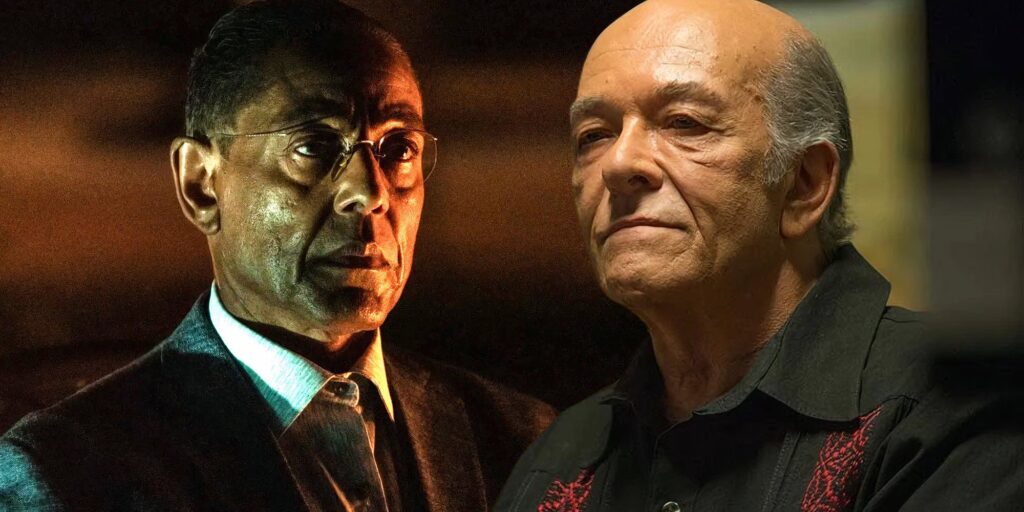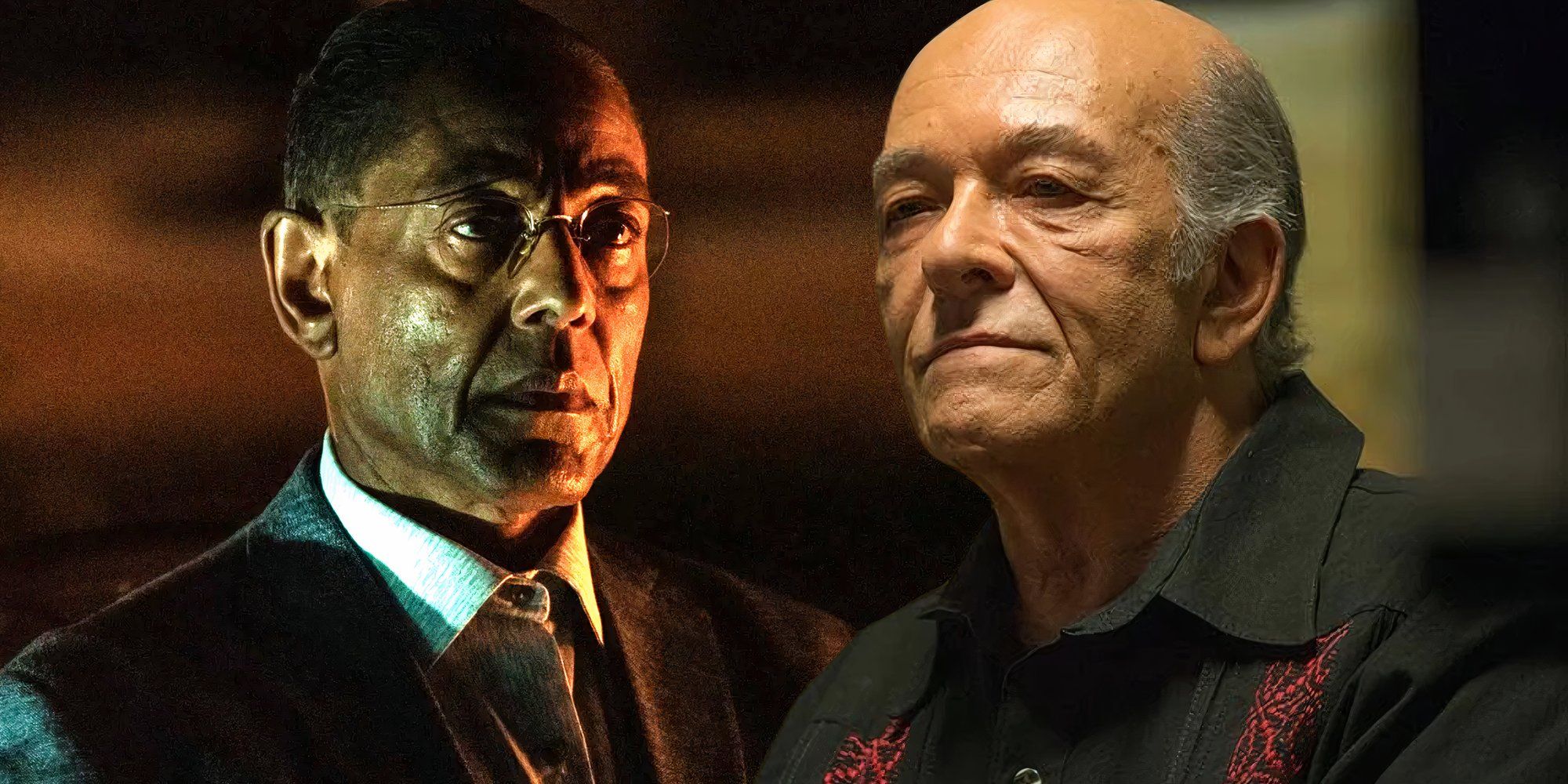
Gustavo Fring: Deconstructing the Cold and Calculating Villain of Breaking Bad
Gustavo Fring, often referred to simply as Gus, stands as one of the most iconic and chilling villains in television history. His portrayal in AMC’s critically acclaimed series, Breaking Bad, and its prequel, Better Call Saul, is a masterclass in understated menace and calculated control. This article delves into the complex character of Gustavo Fring, exploring his origins, motivations, and the meticulous construction of his criminal empire. We will examine the elements that made him such a compelling antagonist and how his presence elevated Breaking Bad to new heights.
The Chicken Man: A Carefully Constructed Facade
On the surface, Gustavo Fring presents himself as a successful businessman and philanthropist. He owns and operates Los Pollos Hermanos, a popular fast-food chain specializing in fried chicken. This seemingly legitimate business serves as a front for his vast methamphetamine distribution network. Gus cultivates an image of respectability, donating to local charities and maintaining a clean public profile. This carefully constructed facade is essential to his operations, allowing him to move freely and avoid suspicion from law enforcement. The genius of Gustavo Fring lies in his ability to seamlessly blend into society while orchestrating a criminal enterprise of immense scale.
Origins and Backstory: The Mystery of Gus Fring
While Breaking Bad provides glimpses into Gus’s past, his origins remain shrouded in mystery. Hints suggest a connection to Chile, where he may have been involved in political activities or associated with a powerful cartel. The details are deliberately vague, adding to the mystique surrounding the character. The loss of his partner, Max Arciniega, at the hands of Hector Salamanca fuels his burning desire for revenge, a driving force behind many of his actions. This tragic backstory, though sparsely detailed, provides a crucial insight into the motivations of Gustavo Fring and his relentless pursuit of power.
The Business of Crime: Meticulous Planning and Execution
Gustavo Fring approaches the drug trade with a level of meticulous planning and execution rarely seen in the criminal underworld. He operates with a ruthless efficiency, carefully selecting his associates and meticulously managing every aspect of his business. From the production of methamphetamine to its distribution and sale, Gus maintains strict control, minimizing risks and maximizing profits. His attention to detail is legendary, and he brooks no incompetence or disloyalty. Gustavo Fring is a master strategist, always several steps ahead of his rivals and law enforcement.
Relationships: Loyalty and Betrayal in the Drug Trade
Gus’s relationships are complex and often transactional. He values loyalty above all else, but he is also quick to eliminate anyone who poses a threat to his operation. His relationship with Walter White is particularly fascinating, evolving from a business partnership to a tense and volatile power struggle. Gus recognizes Walt’s talent for cooking methamphetamine but is wary of his unpredictable nature. He attempts to manipulate Walt, using threats and rewards to control him. However, Walt’s growing ambition and ego ultimately lead to a devastating confrontation. The dynamic between Gustavo Fring and Walter White is a central theme of Breaking Bad, exploring the corrupting influence of power and the consequences of moral compromise.
Key Relationships
- Walter White: A volatile partnership fueled by ambition and mistrust.
- Jesse Pinkman: Exploited and manipulated, but sometimes shown a sliver of respect.
- Mike Ehrmantraut: Gus’s loyal and highly competent fixer, a relationship built on mutual respect and shared pragmatism.
- Gale Boetticher: A brilliant chemist, but ultimately expendable in Gus’s grand scheme.
The Downfall: Nemesis and Revenge
Gus’s meticulous planning and ruthless efficiency are ultimately undone by his own desire for revenge. His long-standing feud with Hector Salamanca, fueled by the murder of Max, blinds him to the dangers posed by Walter White. Walt, driven by his own ambition and a desire to protect Jesse, orchestrates a cunning plan to eliminate Gus. The explosive confrontation at the nursing home, orchestrated with the help of Hector Salamanca, marks the end of Gustavo Fring’s reign of terror. His death, though violent and shocking, is a fitting end to a character who lived by the sword.
The Legacy: A Villain for the Ages
Gustavo Fring’s legacy extends far beyond the confines of Breaking Bad. He is widely regarded as one of the greatest television villains of all time, praised for his intelligence, composure, and chilling presence. His character serves as a cautionary tale about the corrupting influence of power and the dangers of unchecked ambition. The portrayal of Gustavo Fring by Giancarlo Esposito is universally acclaimed, earning him numerous awards and nominations. Gus’s impact on popular culture is undeniable, and his image continues to resonate with audiences years after the show’s conclusion. He represents the epitome of a cool, collected, and utterly ruthless antagonist.
The Business Acumen of a Drug Lord
Beyond the criminal activities, it’s impossible to ignore the sheer business acumen displayed by Gustavo Fring. He built a multi-million dollar empire from the ground up, managing complex logistics, supply chains, and distribution networks. His ability to compartmentalize his legitimate business from his illegal operations is a testament to his organizational skills and strategic thinking. He understood the importance of branding (Los Pollos Hermanos), customer service (even within the drug trade), and risk management. While his methods were undeniably criminal, the business principles he employed are undeniably impressive. This duality – the ruthless drug lord and the savvy entrepreneur – is what makes Gustavo Fring such a compelling and memorable character.
The Psychological Depth of a Cold-Blooded Killer
What truly sets Gustavo Fring apart from other villains is his psychological depth. He is not simply a one-dimensional antagonist; he is a complex and nuanced character with a hidden past and deeply buried emotions. His cold and calculating demeanor masks a profound sense of loss and a burning desire for revenge. He is a master of manipulation, able to exploit the weaknesses of others to achieve his goals. His ability to maintain composure under pressure is unnerving, and his unwavering focus on his objectives is both admirable and terrifying. Understanding the psychological makeup of Gustavo Fring is key to appreciating the brilliance of his character.
Gustavo Fring in Popular Culture
The impact of Gustavo Fring on popular culture is undeniable. His iconic image, often featuring his signature yellow Los Pollos Hermanos uniform, has been widely parodied and referenced in various forms of media. His catchphrases, such as “Tight, tight, tight!”, have become ingrained in the lexicon of Breaking Bad fans. He is a popular subject of fan art, cosplay, and online memes. The enduring popularity of Gustavo Fring is a testament to the character’s enduring appeal and the brilliance of his portrayal. [See also: The Evolution of Walter White] [See also: Mike Ehrmantraut: The Fixer’s Code] [See also: The Symbolism of Color in Breaking Bad]
The Perfect Antagonist
In conclusion, Gustavo Fring is a meticulously crafted character that embodies the perfect antagonist. His intelligence, ruthlessness, and unwavering focus make him a formidable opponent for Walter White. His complex backstory and carefully constructed facade add depth and nuance to his portrayal. Gustavo Fring is more than just a villain; he is a symbol of the corrupting influence of power and the consequences of unchecked ambition. His legacy as one of the greatest television villains of all time is well-deserved, and his presence continues to resonate with audiences long after the end of Breaking Bad. The character of Gustavo Fring serves as a benchmark for villainous portrayals in television, solidifying his place in pop culture history. The cold demeanor of Gustavo Fring, combined with his strategic brilliance, makes him a truly unforgettable character. Analyzing Gustavo Fring’s actions reveals a deep understanding of human nature and the dynamics of power. Even in the face of death, Gustavo Fring maintains his composure, a testament to his unwavering resolve. The story of Gustavo Fring is a cautionary tale about the perils of ambition and the price of revenge. The meticulous planning of Gustavo Fring is a key element of his success, but also his downfall. The character of Gustavo Fring will continue to be analyzed and debated for years to come, cementing his status as a television icon. The name Gustavo Fring is synonymous with meticulous planning and ruthless efficiency. The portrayal of Gustavo Fring is a masterclass in understated menace and calculated control.

